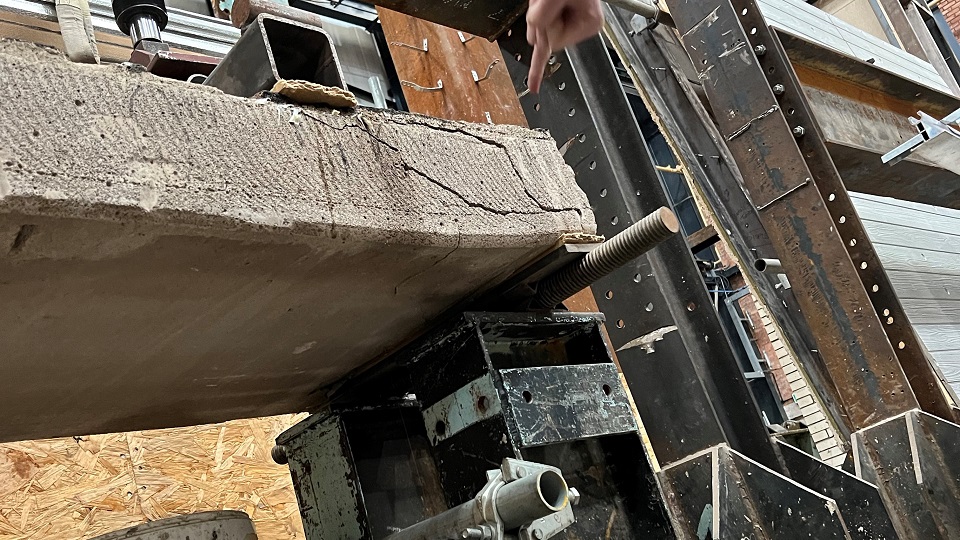This is the key message from academics based in Loughborough University’s world-leading Construction Management and Structures and Materials research groups, in the wake of the RAAC crisis.
Loughborough’s experts have been studying RAAC for several years, undertaking projects funded by the NHS on RAAC in hospitals, and advising the Department for Education and other top-level Governmental bodies on the risks associated with the material and how best to manage these. Their work has been instrumental to identify the main issues with RAAC, develop recommendations and define the way forward.
RAAC is an aerated lightweight cementitious material with no coarse aggregate; the material properties and structural behaviour therefore differs significantly from ‘traditional’ reinforced concrete.
Widely used in construction during the 1960s and 70s, hundreds of 1000s of RAAC structural panels exist across a broad cross-section of buildings. The vast majority form the roof of the structure, usually flat, and hence are difficult to access, survey, maintain and replace.
Whilst the current discussions are focussed on RAAC in schools, the research team argue the scale of the problem is much wider, affecting many public and private buildings. These include everything from police stations and law courts, to libraries and office blocks.
The next phase of research for the groups is to look at the best ways to assess and grade the risk of RAAC failure, and on the most effective course of action to take to ensure RAAC in buildings is safe. The group is currently working with different Government departments, Central Government, professional bodies and engineering firms to ensure the research continues to deliver swift and positive practical impact.
Speaking about their work, Professor Chris Goodier said: “It is important that the concerns around RAAC are not overstated. There is nothing from our research to indicate that RAAC fails immediately after 30 years, or that it is a dangerous material. What our research does show is that RAAC that has been poorly manufactured, installed or maintained is at greater risk of failing.
"The task we now face is to find out where RAAC is in buildings and assess the state it is in. Only then can we fully understand the scale of the problem and look at the best course of action to take. Ultimately, the world needs to learn how to live with RAAC, and here at Loughborough we are providing the research-based answers on how to do this.”
In recent days Loughborough’s research on RAAC has received unprecedented media attention, with expert comments and insight from the lead academics featuring in multiple national and international newspapers, radio and television broadcasts.
The members of the Loughborough University groups leading research on RAAC in the UK are:
Professor Chriss Goodier
Professor Sergio Cavalaro
Professor Chris Gorse
Dr Karen Blay
Dr Ana Blanco
Want to speak to one of our RAAC experts? Contact the Public Relations team for further information: publicrelations@lboro.ac.uk
Industry partners the groups are currently working with include:
Sweco
Lucideon
Concrete Preservation Technologies
iaconnects
